The Future of Precision Medicine: From Gene Therapy to Data Sharing Boom – Excerpts from the US-Taiwan Precision Medicine Forum
“Precision medicine defines the evolution in modern medicine,” said Dr. Chung-Hsiun Wu, President of the Development Center for Biotechnology, setting the stage while inaugurating the US-Taiwan Precision Medicine Forum on July 20th.
Experts, including professors, officials, and professionals from top gene therapy companies in the US, participated in the event to share their valuable insights on the future of precision medicine.
Dr. Chung-Hsiun Wu began by stating that genetic testing and disease analysis have inspired more effective and precise therapies, with the promise to guide future diagnosis and treatments in various indications. As a result, the industry could position itself as one of the driving forces of economic growth.
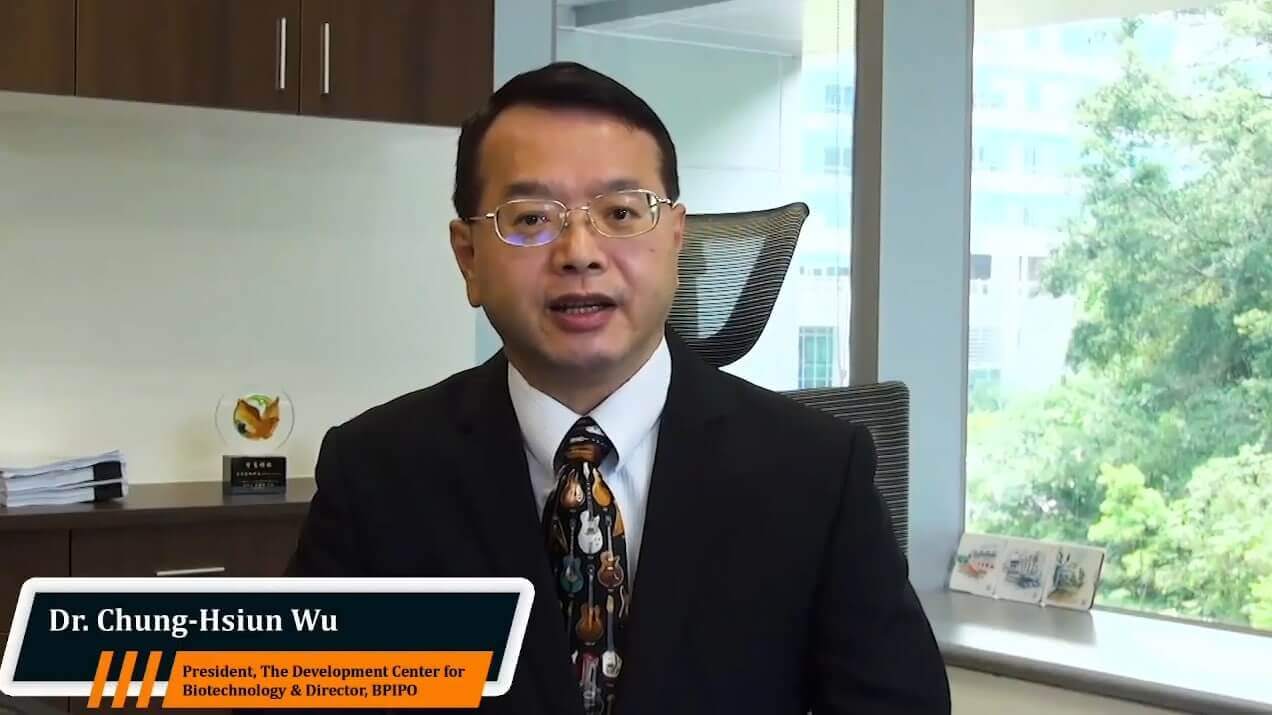 Dr. Chung-Hsiun Wu, President, The Development Center for Biotechnology & Director, BPIPO
Dr. Chung-Hsiun Wu, President, The Development Center for Biotechnology & Director, BPIPO
Next, Mr. Wei Ding, Director of the Taipei Economic and Cultural Office in New York, pointed out that the COVID-19 pandemic has accelerated global collaborations, especially in the medical supply chain, from basic research, drug development to product manufacturing. This has facilitated high-level partnerships between Taiwan and US officers, the biggest of which is a memorandum of understanding (MOU) signed in June 2021 to strengthen the alliance on global health.
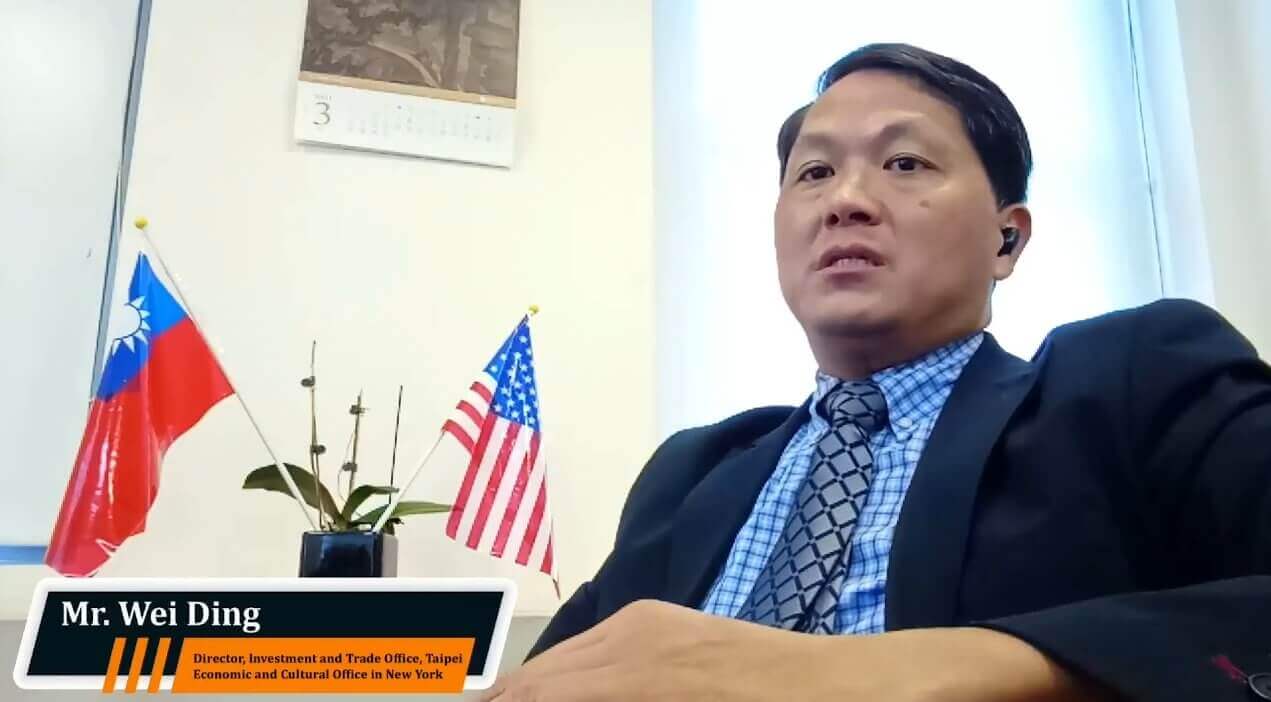 Mr. Wei Ding, Director, Investment and Trade Office, Taipei Economic and Cultural Office in New York
Mr. Wei Ding, Director, Investment and Trade Office, Taipei Economic and Cultural Office in New York
Ms. Debbie Hart, President & CEO of the New Jersey affiliate of the Biotech Innovation Organization (BIO), shared that as a partner of the MOU signed in 2015, New Jersey has worked with Taiwan’s biotech industry to bring more opportunities for jobs and research. She stressed that 30% of the cell and gene therapy development is conducted in New Jersey and wished the collaboration to develop more life-saving innovations with their support.
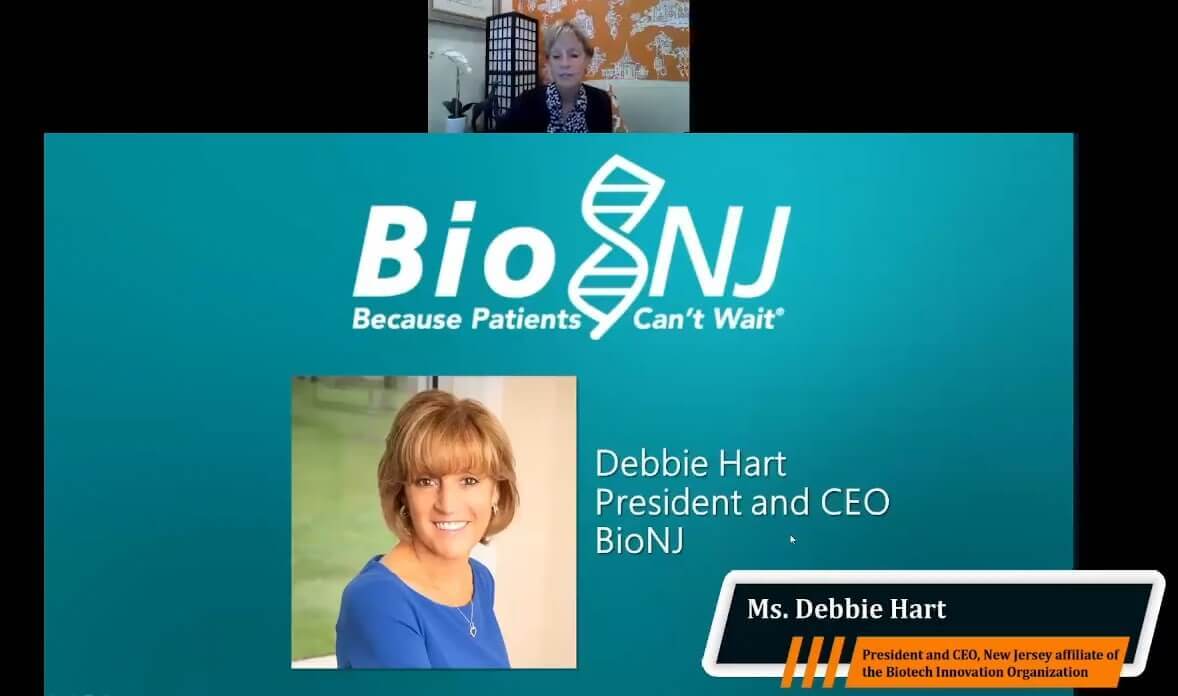 Ms. Debbie Hart, President, and CEO, New Jersey affiliate of the Biotech Innovation Organization
Ms. Debbie Hart, President, and CEO, New Jersey affiliate of the Biotech Innovation Organization
As part of the MOU, Pennsylvania had also worked with Taiwan’s biotech industry. Mr. Kurt Imhof, Vice President of the Policy & Public Affairs of Life Sciences Pennsylvania, asserted that Philadelphia is a startup-driven city in life sciences. It has received approximately 3 billion dollar investment in the first quarter of 2021 and a 1 billion dollar private investment in cell and gene therapy. As a result, Philadelphia is positioning itself as the rising hub in the cell and gene therapy industry.
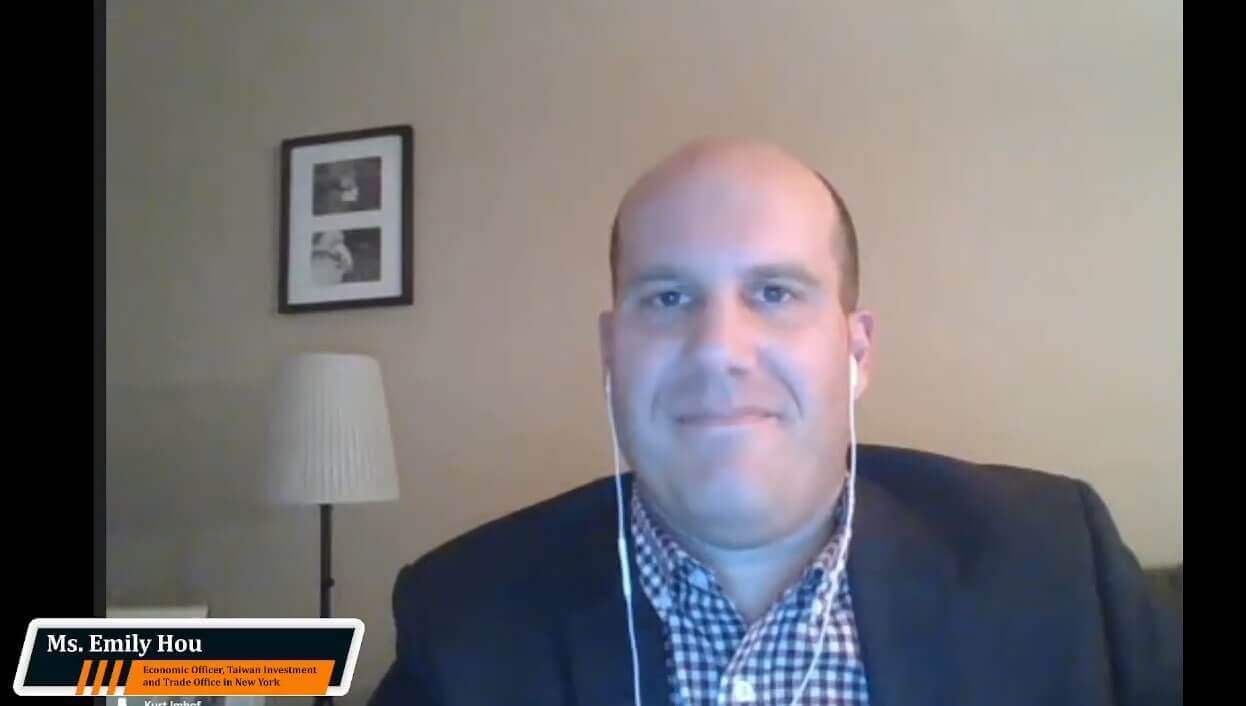 Mr. Kurt Imhof, Vice President, Policy & Public Affairs, Life Sciences Pennsylvania
Mr. Kurt Imhof, Vice President, Policy & Public Affairs, Life Sciences Pennsylvania
Treating Fabry Disease Patients with a Specific Gene Mutation
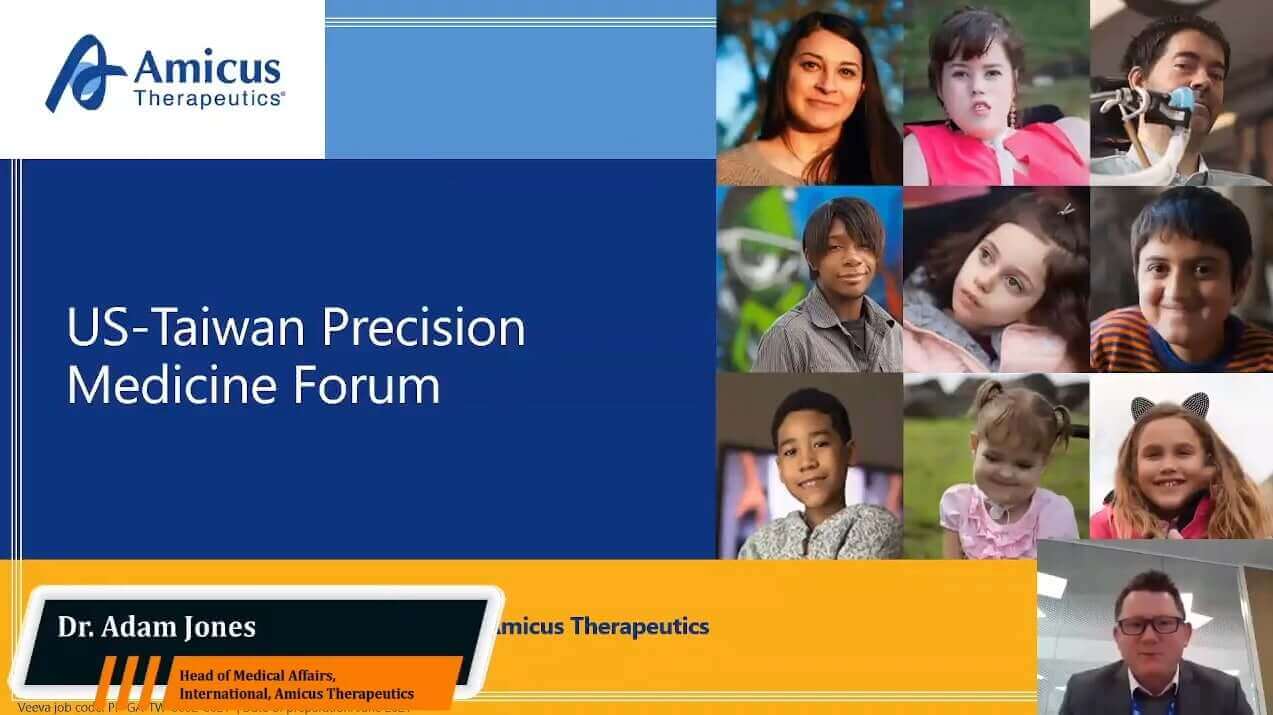 Dr. Adam Jones, Head of Medical Affairs, International, Amicus Therapeutics
Dr. Adam Jones, Head of Medical Affairs, International, Amicus Therapeutics
Dr. Adam Jones, Head of Medical Affairs, Amicus Therapeutics, explained the progress of gene therapies in Fabry disease, a fatal rare genetic disorder. The illness is caused by a deficiency in the lysosomal enzyme α-Gal A, which leads to cell abnormality and organ dysfunction.
Amicus, a US gene therapy firm, fights the disease with an orally administered small-molecule precision medicine called Migalastat. The drug binds to α-Gal A in the endoplasmic reticulum (ER) and traffics the enzyme effectively to lysosomes. Post entry, it dissociates from α-Gal A and restores the enzyme activity.
However, drug efficacy could change in patients who have mutations in the GLA genes. Therefore, an amenability assay is required. Dr. Jones said that around 35-50% of the patients possess the specific mutations that Migalastat could treat, and their assay has a 100% negative predictive value and 95% positive predictive value.
Identifying New Genetic Risk Loci and Pathways in Alzheimer’s Disease
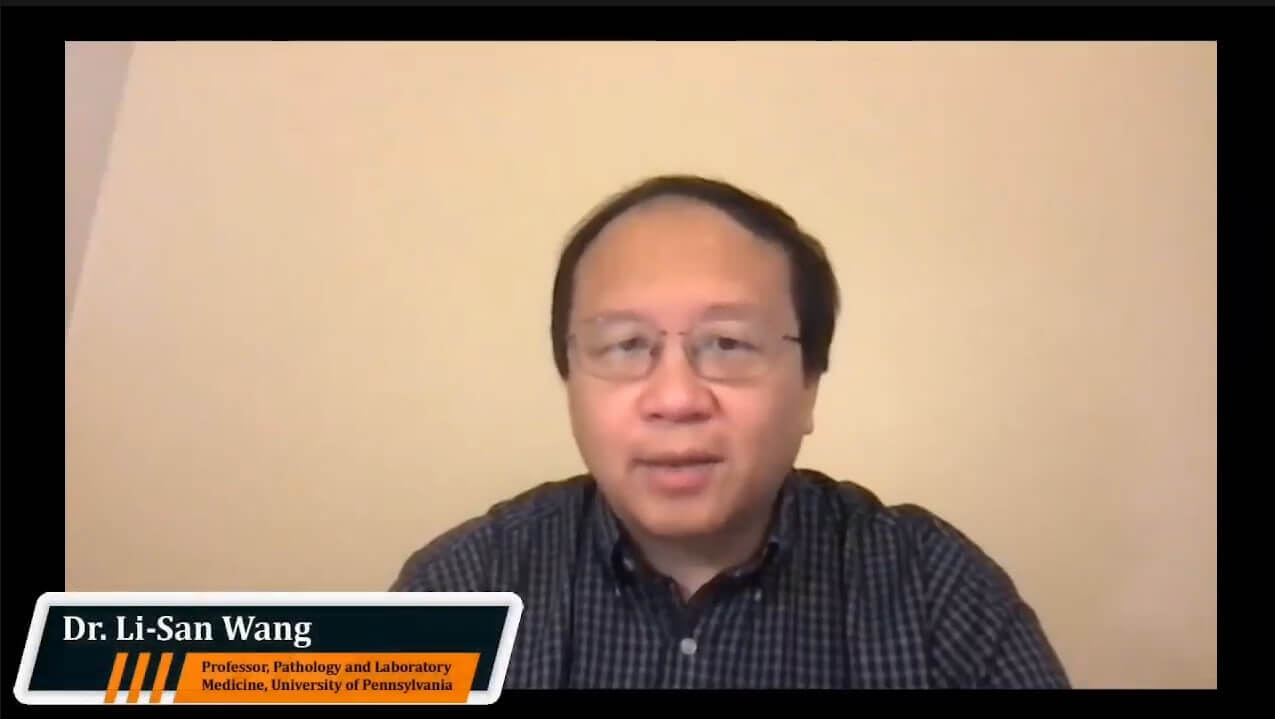 Dr. Li-San Wang, Professor, Pathology and Laboratory Medicine, University of Pennsylvania
Dr. Li-San Wang, Professor, Pathology and Laboratory Medicine, University of Pennsylvania
Dr. Li-San Wang, Professor of the Pathology and Laboratory Medicine, University of Pennsylvania, talked about precision medicine endeavors in Alzheimer’s disease (AD). He presented data from the Genome-wide association studies (GWAS) conducted to identify risk factors in early diagnosis of AD and new targets in prevention trials. The study results were published in the journal Nature Genetics in 2019.
DNA samples were collected from both patients and non-patients, and their genotype variations were compared to identify the variance of AD. The study identified five new genome-wide loci, including IQCK, ACE, ADAM10, ADAMTS1, WWOX, and the biological pathways that the five genes influenced, including immunity, lipid metabolism, and Tau binding. His team also developed a research tool called INFERNO to interpret the molecular mechanisms of non-coding genetic variants.
Homologous Recombination Edits Genes with Fewer Errors
 Ms. Kristi Sarno, Senior Director Business Development & Corporate Strategy, Homology Medicines
Ms. Kristi Sarno, Senior Director Business Development & Corporate Strategy, Homology Medicines
Homology Medicines, a US firm, develops Adeno-Associated Virus Human Stem Cells (AAVHSCs) for gene therapy. Ms. Kristi Sarno, Senior Director of Business Development & Corporate Strategy, stated that for the past five years, the company has promoted four developmental candidates and expects to announce another one this year.
Homology’s gene editing approach is quite different from the widely used CRISPR. It harnesses the naturally occurring process of homologous recombination and therefore does not require a nuclease for gene cutting. Instead, it uses gene correction to replace the entire diseased gene with a functional copy or precisely repair individual mutations in addition to gene knock-out. This way, there would be fewer errors, and the editing is accomplished with high fidelity.
Homology has implemented its gene therapy and gene editing tools and capsid technology on indications such as adult phenylketonuria (PKU), paroxysmal nocturnal hemoglobinuria (PNH), and Hunter syndrome (MPS II). The Phase 2 dose expansion trial is currently enrolling subjects to evaluate the Gene therapy for PKU, and initial data is expected to be released by the end of 2021. In addition, treatment for Hunter syndrome will enter phase 1/2 clinical trials in 2021.
Clinical Advantages with High Homogeneity Group

Dr. Pui-Yan Kwok, M.D., Ph.D., Distinguished Research Fellow and Director (Academician), Institute of Biomedical Sciences, Academia Sinica, Taiwan
To explain how Taiwan approaches precision medicine, Dr. Pui-Yan Kwok, Distinguished Research Fellow, and Director of Academia Sinica, described the progress of the Taiwan Precision Medicine Initiative (TPMI).
The plan expects to sequence the whole genome of over one million citizens to identify the risk factors in disease development, especially for common diseases. Currently, 300,000 citizens have been recruited, and the project is estimated to be completed in two years. So far, his team has discovered that 21% of Taiwanese have mutations in autosomal recessive disease genes, and 5% have mutations for autosomal dominant traits.
Moreover, Taiwan is an ideal place to develop precision medicine for common diseases. To begin with, 96% of the Taiwanese population is Han Chinese, which accounts for 19% of the world population. The homogeneity gives Taiwan an edge in examining the whole genome of Han Chinese.
In addition, Taiwan’s National Health Insurance and Electronic Health Records could further accelerate the progress. Currently, the project encompasses 15 hospitals whose patients constitute 30% of the entire population.
NGS Cancer Diagnosis on DNA and RNA Sequencing
 Dr. Wuh-Liang Hwu, M.D., Ph.D., Professor of the Department of Medical Genetics, National Taiwan University Hospital
Dr. Wuh-Liang Hwu, M.D., Ph.D., Professor of the Department of Medical Genetics, National Taiwan University Hospital
Dr. Wuh-Liang Hwu, Professor of the Department of Medical Genetics, National Taiwan University Hospital, introduced two tools, WES trio, and MViewer software, which are used in identifying single-gene diseases and for cancer diagnosis.
WES trio can analyze the genome of children with acute illness and shorten the turn-around time to less than six days. MViewer software can then associate the genome variation with clinical information via AI tools to testify to the gene ranching list of diseases.
He also mentioned two NGS-based cancer diagnosis tools in development, the whole-exome sequencing (WES) and total RNA-seq analysis. The research team tried to sequence all the DNA and RNA in the cancer samples. WES can identify the microsatellite instability, DNA damages caused by homologous recombination defects and analyze tumor mutation burden. On the other hand, the total RNA-seq analysis identified BCR and ABL1 gene translocations.
Critical Role of Data Processing and Storage in Precision Medicine

Dr. Yu-Tai Wang, director of the Technology for AIoT & Biomedical Information Service Division, National Center for High-Performance Computing (NCHC)
Dr. Yu-Tai Wang, Director, Technology for AIoT & Biomedical Information Service Division, National Center for High-Performance Computing (NCHC), approached precision medicine from a different angle.
Genome sequencing is the foundation of precision medicine. If we sequence the genome of 70,000 cancer patients, which is the annual amount of new cancer cases in Taiwan, it will take up to 14 million GB, which is 14 PB of data to store. He emphasized that the importance of data storage and processing has never been higher.
Dr. Yu-Tai Wang stressed that NCHC is the AI enabler in Taiwan, with Taiwan’s only national-level supercomputing center. In 2020, the data of Taiwan’s biobank was placed on the server of NCHC, thereby increasing the availability of Taiwan’s healthcare data.
Researchers in the past had to use hard drives to transmit huge data, which was burdensome to both parties. However, today, firms and organizations can download the data by applying for an account online and analyze the approved data in the environment of NCHC. What’s more, the system is now secure from malware, thanks to the 13 million malware samples NCHC has collected to construct its malware behavior knowledge database.
What’s Next for Precision Medicine?
The panel discussion started with the topic of what’s required in advancing precision medicine, international collaboration strategy, and suggestions for policymakers and domestic companies.
Dr. Li-San Wang said data availability would be the key to accelerate precision medicine development. In the US, healthcare data is not easily accessible, but research requires data. With its solid infrastructure in computer science and engineering, Taiwan can help make the data accessible to international researchers and help expand the field.
Dr. Pui-Yan Kwok said data might be the most important part of improving the outcome of precision medicine. Taiwan should encourage data sharing and utilize its homogeneous clinical data for research. With regards to the cost of cell and gene therapy, he advised everyone to view things in context and not in isolation. He pointed out that cell and gene therapies might be expensive, but treatments that required long-term payment could cost the same.
Dr. Wuh-Liang Hwu said product development in gene therapy is another aspect to be considered. The US has more experience in the process, so it would be beneficial to work with US firms. On the other hand, he said that brain diseases could be a big focus for gene therapy, so it should be considered while mapping out a firms’ future strategies.
Dr. Yu-Tai Wang then encouraged the development of homomorphic encryption and federated learning to protect data privacy while processing and exchanging data. The technology allows data to be processed in the encrypted form while the latter gives us the option to exchange the data model without revealing the data to build the model.
Dr. Wan-Ping Lee, Research Assistant Professor, Pathology and Laboratory Medicine, University of Pennsylvania, said that well-rounded multi-omic data, including MRI, and medical records, could be advantageous for precision medicine advancement.
On top of that, developing on-chip data processing systems for faster data processing could be a market to invest in because it fits with the immense data processing needs in the biotech industry. Furthermore, international cooperation and exchange programs could provide greater insights into the field. Therefore, finding the right partner would be the key to success.
(Advertisement of Industrial Development Bureau, Ministry of Economic Affairs)
©www.geneonline.com All rights reserved. Collaborate with us: service@geneonlineasia.com








